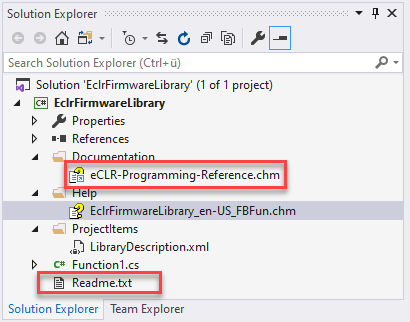Supported functions for C# programming
C# language functions
Types
All the integrated types are supported, except for decimal.
Type system
- namespaces, structs, classes, interfaces, enumerations, nested types
- indexers, properties, operations
- events, delegates, MultiCastDelegates
- arrays
- constructors, static constructors, destructors (finalizers)
- boxing, unboxing, static casts
- nullable
Polymorphy
- Virtual mechanism (virtual, overwrite, abstract)
- Dynamic casts (as)
Modifiers and keywords
- public, internal, protected, private
- readonly, const, sealed, unsafe
- params, ref, out
- base, this
- explicit, implicit, operator
Operators
- new, sizeof, typeof, as, is
- all unary operators
- all binary operators
- prefix, postfix and conditional operator
- cast and index operator
Control structures and statements
- if, else
- switch, case, default (also on strings)
- for, do, while, foreach, break, continue
- goto, return
- using, fixed
- lock
Exceptions
- throw
- try, catch, finally
Please refer to Known Issues and Constraints section you find in the online help embedded in every C# project that is derived from one of the templates.
Here you find that information:Click to show where it is
In Visual Studio, open your C# project and expand the EclrFirmwareLibrary branch in the Solution Explorer in the upper right corner of the screen.

Base class libraries
Below you will find a list of the most important classes that have been implemented in the eCLR base class library, separated by namespaces.
A complete list of the implemented classes with additional information is available in Section “eCLR Base Class Libraries Reference” of the eCLR-Programming-Reference.chm online help embedded in every C# project derived from one of the templates (Click to show where it is).
System
All integrated types, as well as the following:
- Char, Boolean, Int32, Single, etc., with the exception of decimal
- All common exception types
- Common interfaces such as:
IDisposable, IComparable, ICloneable, IFormatProvider, IFormattable - String, array, object, valuetype
- Version, DateTime, TimeSpan, TimeZone
- BitConverter, Convert
- GC
- Console
- Uri, UriBuilder
System.Collections
- IEnumerator, IEnumerable, ICollection, IList, IDictionary, IComparer
- ArrayList, Hashtable, Queue
- Comparer, DictionaryEntry
System.Collections.Generic
- IEnumerator<T>, IEnumerable<T>, ICollection<T>, ICollection<T>, IList<T>,
IDictionary<TKey,TValue>, IComparer<T> - Dictionary<TKey,TValue>, List<T>, Queue<T>
- Comparer<T>, KeyValuePair<TKey,TValue>
System.Globalization
- Calendar, CalendarWeekRule
- CultureInfo
Supported cultures: de-DE, en-US, en-GB, Invariant
Types that support the localized formatting/parsing: all number types, DateTime, TimeSpan - DateTimeFormatInfo, NumberFormatInfo, NumberStyles, DateTimeStyles
System.IO
- Path, File
- Stream, FileStream, MemoryStream
- BinaryReader, BinaryWriter
- TextReader, TextWriter, StreamReader, StreamWriter, StringReader, StringWriter
System.Security.Cryptography
- CryptoConfig
- HashAlgorithm, MD5, MD5CryptoServiceProvider
System.Text
- StringBuilder
- Encoding, ASCII Encoding, UTF8 Encoding, Unicode Encoding (big endian and little endian)
System.Threading
- Thread, ThreadPool, ThreadStart, ThreadState
- Monitor (lock)
- WaitHandle, EventWaitHandle, AutoResetEvent, ManualResetEvent, WaitCallback
- Timer, TimerCallback
System.Net
- IPAdress, IPEndpoint, Endpoint, SocketAddress
System.Net.Sockets
- NetworkStream
- AddressFamily, ProtocolType
- Socket, SocketType
eCLR runtime functions
Garbage collection
Memory management is performed by the eCLR. The garbage collector should explicitly only be called at a specific point in time (application of GC.Collect).
Implicit finalization
The finalizer of each applicable .NET class (implementing ~T()) is called when the garbage collector releases the instance. The garbage collector collect function is called automatically. The time of the implicit call cannot be predicted.
Implicit initialization
All the integrated types and value types (struct) are implicitly initialized with their default values. Reference type instances are implicitly initialized with the value “zero”.
Debug support
- Defining breakpoints
- Evaluation of instance values and local variables, as well as arguments from the current method
- Providing call stack information
Known issues and constraints
Please refer to Known Issues and Constraints section of the online help that is embedded in every C# project derived from one of the templates.
Here you find the online help file:Click to show where to find the online help
See also